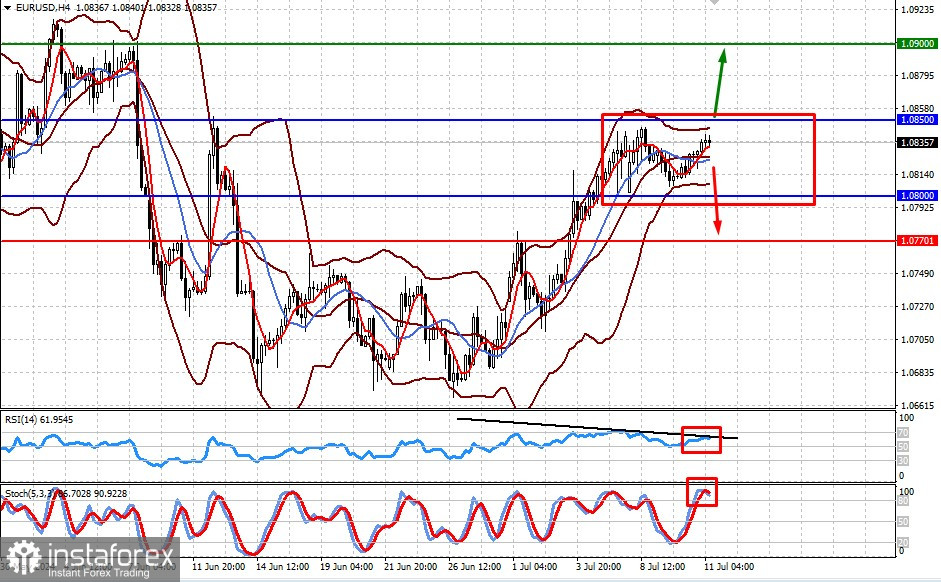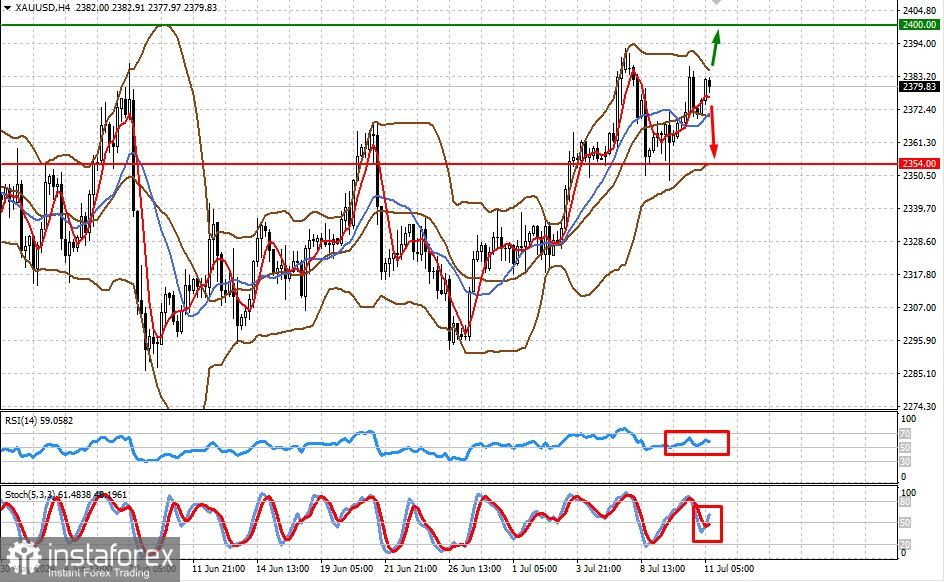Today, the main event will be the release of US consumer inflation data, which many in the market expect will clarify the prospects of the Federal Reserve starting to cut interest rates.
Indeed, after Federal Reserve Chairman Jerome Powell, during his Senate testimony earlier this week, once again confirmed the baselessness of rate cuts soon due to high inflation, the market has shifted its attention to today's release of the June consumer price index. Traders are awaiting these data to determine whether there is a realistic hope that the Fed will begin lowering rates this year.
A paradoxical situation is unfolding. In US business media, following last week's job numbers from the US Department of Labor for June, there has been a surge in the narrative that the labor market is cooling. They argue that the number of new jobs is no longer noticeably above 200,000 or even 300,000, but only 206,000, indicating the beginning of radical changes in the unemployment situation in the US towards deterioration.
Frankly, such discussions are unconvincing. It is generally accepted that job growth of 200,000 or more indicates a strong labor market, while 300,000 or more suggests an anomaly pointing to previous employment failures. What is this? The market's attempt to pressure the Fed to start lowering rates with inflation above 3%? Perhaps. However, it seems that with such a labor market and inflation above 3%, the regulator, adhering to an economic model with inflation around 2%, will not make concessions, especially amid the intense political standoff during the presidential election race.
How might markets react to the US inflation figures?
According to consensus forecasts, the year-over-year figure for June is expected to fall from 3.3% to 3.1%, while the month-over-month figure is expected to rise by 0.1% from May's zero growth.
Assessing the likely market reaction, if the data aligns with expectations, it will unlikely lead to significant changes in the overall market situation. We should only expect something if the macro indicator values deviate. If it shows a drop to 3.0% year-over-year and again no monthly growth, this would lead to a local decline in the dollar on the Forex market and increased demand for company stocks and commodity market assets. Conversely, if inflation deviates upward from the forecast, we could observe the opposite reaction - dollar strengthening, a local sell-off of stocks, gold, and other assets.
Overall, neither the first nor the second scenario will likely be a basis for strong and prolonged movement, as the consumer price index will still be above the target of 2%, meaning it is still too early to hope for rate cuts in September.
Forecast of the Day:


EUR/USD
The pair is trading in the range of 1.0800-1.0850. It can break out of this range if the statistical data significantly deviates from the forecast. Negative news for the dollar may lead to a breakout and a rise in the pair to 1.0900. Positive news - inflation increase - may lead to a drop to 1.0770.
XAU/USD
The spot gold price can also rise or fall depending on negative or positive news for the dollar. In the first case, one can expect a local price increase to 2400.00 and a decline to 2354.00 in the second.





















